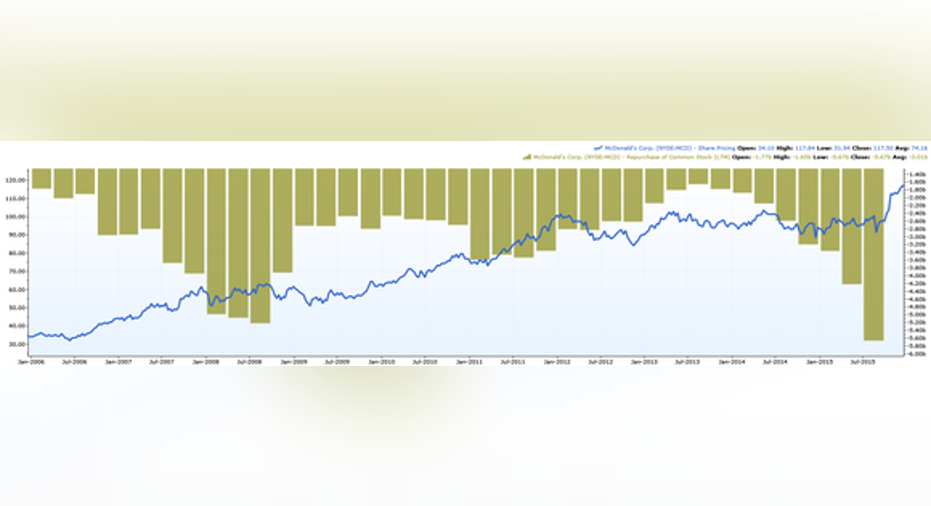Does a Stock Buyback Affect the Price?

Stock buybacks, also sometimes known as share repurchases, are a common way for companies to pay their shareholders. In a buyback, a company purchases shares of itself from its own shareholders. Doing so decreases the number of shares held by the public, thereby increasing the ownership stake of each remaining shareholder and -- hopefully -- the share price.
Buybacks vs. dividendsBoth buybacks and dividends are options for a company that wants to pay -- usually euphemistically referred to as "return value to" or "reward" -- shareholders. But there are some important differences.
Dividend payments usually contain an implicit promise that the company will try to maintain or raise the dividend over time. Buybacks allow a company to pay its shareholders without tacitly committing itself to maintaining those payments for years to come.
Buybacks can also be more lucrative for corporate executives than dividends. Managers who are paid in stock options rather than company stock don't receive dividends, but they may benefit from a buyback that pushes up the near-term or long-term stock price.
Buybacks can also be lucrative to shareholders if the company's stock is undervalued when it's bought back. But if the stock is overvalued, buybacks can be a waste of money. You'll often see companies buy back lots of stock when earnings are good -- and stock prices high -- only to be forced to reduce buybacks, and even sell stock, when losses are piling up, and share prices low. Needless to say, buying high and selling low is exactly the opposite of what long-term shareholders want.
How does a stock buyback affect the price?A buyback reduces the number of shares in a company held by the public. Because every share of stock is a partial share of a company, the portion of that company that each remaining shareholder owns increases.
In the near term, the stock price may rise because shareholders know that a buyback will immediately boost earnings per share. Over the long term, a buyback may or may not be beneficial to shareholders. Here's an example of how it works.
In 2013, McDonald'sbought back 18.7 million shares for $1.8 billion dollars -- an average price of $96.96. Without the share buyback, McDonald's would have finished the year with 1,008.7 million shares. Each shareholder then owned a 1.8% greater share of the company than they would have otherwise.
With fewer shares out there, earnings per share increased. Book value per share decreased -- while each shareholder got a bigger share of the pie, the pie itself became smaller when McDonald's spent a lot of money on the buybacks.
Data from Standard and Poor's Capital IQ. *Approximate based on author's estimates.
Will the buyback make shareholders better off or worse off? It depends upon whether the company got a good deal for its money. In other words, long-term shareholders hope the company paid a price that was lower than the stock's intrinsic value.
Comparing McDonald's' share buybacks with its stock price from 2006 through 2015 suggests that the McDonald's' buybacks have done well for shareholders, because they occurred at much lower price points than the long-term future price.
This article is part of The Motley Fool's Knowledge Center, which was created based on the collected wisdom of a fantastic community of investors based in theFoolsaurus. Pop on over there to learn more about our Wiki andhow you can be involvedin helping the world invest, better! If you see any issues with this page, please email us atknowledgecenter@fool.com. Thanks -- and Fool on!
The article Does a Stock Buyback Affect the Price? originally appeared on Fool.com.
The Motley Fool has no position in any of the stocks mentioned. Try any of our Foolish newsletter services free for 30 days. We Fools may not all hold the same opinions, but we all believe that considering a diverse range of insights makes us better investors. The Motley Fool has a disclosure policy.
Copyright 1995 - 2016 The Motley Fool, LLC. All rights reserved. The Motley Fool has a disclosure policy.



















